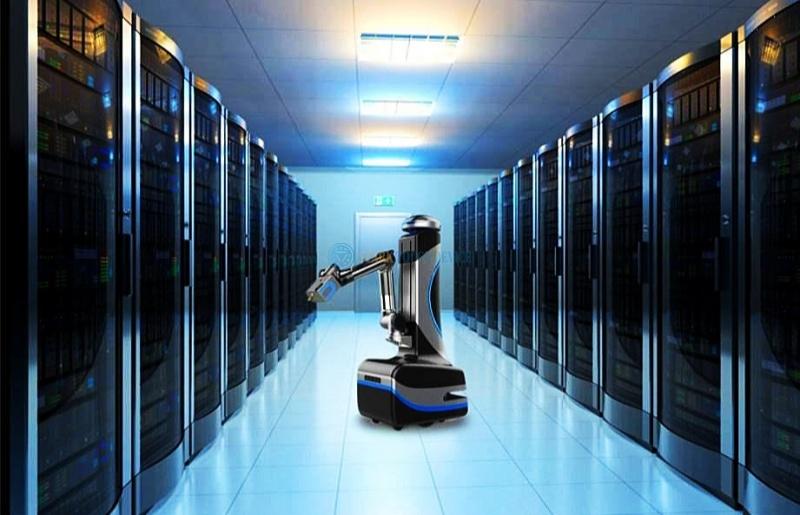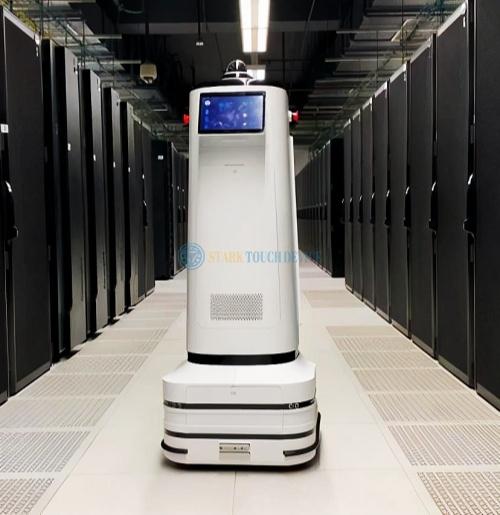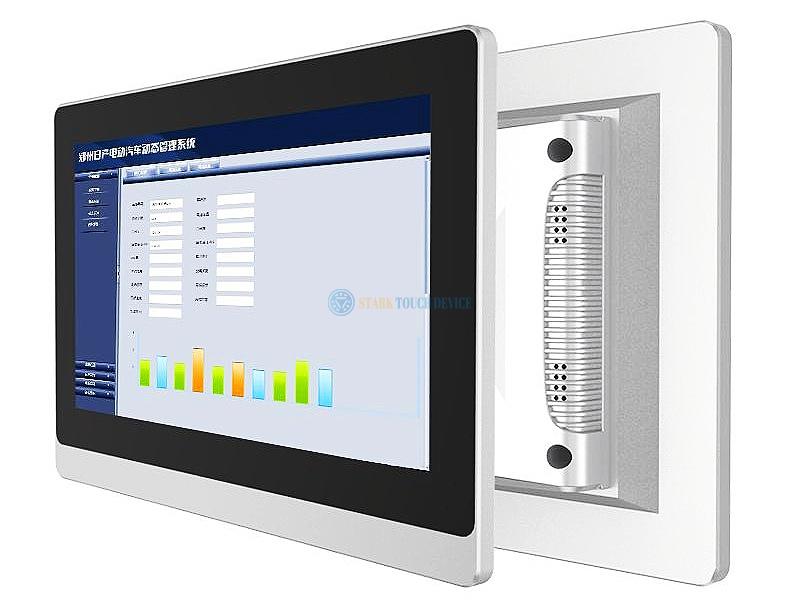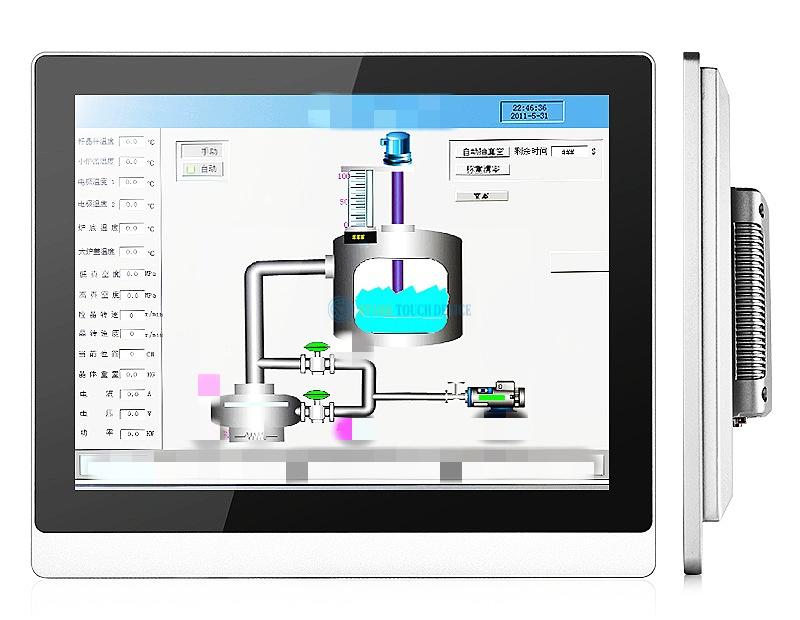Welcome STARK TOUCH DEVICE!
Artificial intelligence
Application of Industrial Tablets in AI Robot Patrol Scenarios for Server Rooms
AI robot patrols in server rooms, as the name suggests, are primarily tasked with conducting routine inspections within server rooms. They represent one model within the broader category of inspection robots, which also includes AI robots for power plant inspections, railway inspections, and more. In essence, these robots are designed and developed to cater to specific work environments, filling in gaps where human intervention is suboptimal.
Compared to manual 24/7 patrols and monitoring, AI robot inspections are significantly more efficient and cost-effective. Server room inspections are intricate processes where humans can discern the smooth operation of electrical circuits and identify abnormalities in lighting equipment but struggle to detect component aging, wear and tear, loose or deformed parts, and indoor hazards like smoke and dust. Scientific inspections are where robots excel; humans rely on existing, observable conditions, while AI robots employ meticulous observation and detection to "predict" issues beforehand, thus preventing potential disasters.

The role of AI robot patrols in server rooms is to integrate artificial intelligence with multi-sensors to automatically detect and diagnose server room equipment and environments. Their responsibilities encompass equipment inspection and coding, environmental monitoring, asset inventory, fault alerting, and personnel management. Specifically designed for server room maintenance, these robots must be "intelligent" like humans, capable of autonomous route planning, self-inspection, obstacle avoidance, and real-time visibility and manageability of server room conditions, thereby enhancing operational efficiency, resource utilization, and overall stability.
The application of industrial tablets in AI robot patrols for server rooms manifests in their role as intelligent control terminals. Based on the robots' application requirements and designers' intended settings, these tablets must fulfill the following responsibilities or requirements:

Self-navigation and Obstacle Avoidance: Automatically plan walking routes, conduct self-inspections, and navigate around obstacles.
Equipment Inspection: Detect, code, and monitor indicators, switches, gauges, screen displays, and surface temperatures.
Environmental Monitoring: Measure temperature, humidity, dust, smoke, noise, gas levels, wind speed, and monitor alarms.
Fault Alerting: Real-time fault diagnosis, alert notifications, asset inventory, automatic asset statistics, and dynamic asset list updates.
Personnel Management: Card/ID reading, personnel registration, and access control.
Industrial tablets serve as the platform for interaction between staff and AI robot patrols in server rooms. They generate feasibility reports based on inspection data for staff review and are also responsible for security functions like personnel management, registration, and identification. To achieve this, industrial tablets must have their own operating systems connected to AI robots, capable of processing complex data and integrating special modules like RFID readers, built-in microphones, and cameras.

This series of industrial tablets, available in silver and gunmetal colors, boasts industrial-grade quality, resilience to high electromagnetic and electrostatic interference in server rooms, aluminum alloy die-casting for dust and water resistance, and sleek industrial aesthetics that seamlessly integrate with AI robots. Powerful in performance, they ensure uninterrupted, efficient, and stable operation 7x24 hours under harsh conditions, compatible with 99% of industry software. Customizable modules and upgrades (e.g., RFID readers, face recognition, microphones) are available upon request.

Key Features:
High-precision aluminum alloy die-casting with radiation-proof and anti-EMI internal design
Proprietary X86 industrial-grade motherboard paired with a Celeron J1900 quad-core processor (upgradable to Core series) for swift operation and instant data storage
Guaranteed 7x24-hour uninterrupted, high-efficiency, and stable performance to meet inspection and security needs
Pre-installed multiple interfaces for efficient data transmission, importation, and customizable modules to suit application requirements
AI robot patrols for server rooms, designed specifically for the unique environments and requirements of server rooms, underscore the importance of continuous patrols and preventive maintenance based on scientific analysis. This represents a vast market potential, accompanied by significant opportunities for industrial tablets to shine.


